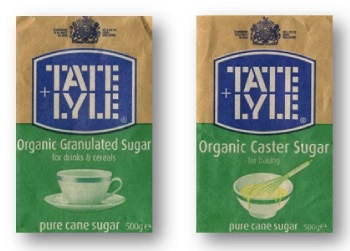

Is Refined Food Really Organic?
By Brane Žilavec, May 2012

Here are presented examples of how organic standards are dealing with the issues related to Organic Refined Foods (see Glossary of the Key Words). The versions of organic standards used are those from December 2008 (i.e., before new EU Organic Regulation came into force on 1st January 2009). I doubt whether the new EU Organic Regulation made any improvements in regard to issues addressed this chapter. But if in the meantime there have been any improvements it will be really good to hear about them.
2.1 Integrity of IFOAM Standards
When one looks into IFOAM Basic Standards [1] with the intention of finding out their position in regard to Wholefood vs Refined then the first thing one can find is very striking: the absence of any clear standpoint or even more general guideline about this important issue. In the whole IFOAM Basic Standards there is only one single reference to ‘whole foods’ – but even this is not in the main text, but in the appendix that describes processing and handling criteria for the evaluation of food additives and food processing aids (see Appendix 3: A Single Reference to Whole Foods in IFOAM Standards). Nowhere else in the whole IFOAM Basic Standards can one find any reference to ‘wholefood’, ‘wholemeal’, ‘wholegrain’, ‘unrefined’ or ‘refined’.
I would expect at least something inside the General Principles which describes general goals of organic production and processing, or inside Recommendations of desirable practices for IFOAM members. Leaving such important issue of food quality in the grey area – that is, not addressing the topic at all – is very surprising, to say at least.
This absence goes against two basic Principles of Organic Agriculture which "serve to inspire the organic movement, and which guide IFOAMs development of positions, programs and standards. Furthermore, they are presented with a vision of their world-wide adoption. They are composed as ethical principles to inspire action." These two principles are: The Principle of Health and The Principle of Care. Let's look on these two principles with special attention to the question how they are congruent with the existence of Organic Refined Foods (italics are mine):
"The Principle of Health: Organic Agriculture should sustain and enhance the health of soil, plant, animal, human and planet as one and indivisible. This principle points out that the health of individuals and communities cannot be separated from the health of ecosystems - healthy soils produce healthy crops that foster the health of animals and people. Health is the wholeness and integrity of living systems. It is not simply the absence of illness, but the maintenance of physical, mental, social and ecological well-being. Immunity, resilience and regeneration are key characteristics of health. The role of organic agriculture, whether in farming, processing, distribution, or consumption, is to sustain and enhance the health of ecosystems and organisms from the smallest in the soil to human beings. In particular, organic agriculture is intended to produce high quality, nutritious food that contributes to preventive health care and well-being. In view of this it should avoid the use of fertilizers, pesticides, animal drugs and food additives that may have adverse health effects."
"The Principle of Care: Organic agriculture should be managed in a precautionary and responsible manner to protect the health and well-being of current and future generations and the environment. Organic agriculture is a living and dynamic system that responds to internal and external demands and conditions. Practitioners of organic agriculture can enhance efficiency and increase productivity, but this should not be at the risk of jeopardizing health and well-being. Consequently, new technologies need to be assessed and existing methods reviewed. Given the incomplete understanding of ecosystems and agriculture, care must be taken. This principle states that precaution and responsibility are the key concerns in management, development and technology choices in organic agriculture. Science is necessary to ensure that organic agriculture is healthy, safe and ecologically sound. However, scientific knowledge alone is not sufficient. Practical experience, accumulated wisdom and traditional and indigenous knowledge offer valid solutions, tested by time. Organic agriculture should prevent significant risks by adopting appropriate technologies and rejecting unpredictable ones, such as genetic engineering. Decisions should reflect the values and needs of all who might be affected, through transparent and participatory processes."
The existence of certified Organic Refined Foods goes also against the IFOAMs General Principle for Processing and Handling which states: "Organic processing and handling provides consumers with nutritious, high quality supplies of organic products and organic farmers with a market without compromise to the organic integrity or their products."
The existence of certified Organic Refined Foods goes also against the General Principle for Processing Methods which states: "Organic food is processed by biological, mechanical and physical methods in a way that maintains the vital quality or each ingredient and the finished products."
The evidence that Organic Refined Foods does not fulfil these principles will be presented in the following chapters.
2.2 Integrity of Soil Association Standards
Another example of a big gap between declared goals and practice, is the Soil Association Organic Standards. [2] On the one hand they are well intended basic principles in regard to wholefood (which in itself is a big improvement in comparison with IFOAM Basic Standards). Among others one can read:
"The Soil Association believes good health is founded on having a diet predominantly composed of minimally processed wholefoods. We cannot support food policies that accept the routine removal and degradation of nutrients by refining and other processing as normal… Our standards aim to ensure that the product is kept as near to its natural state as possible. Organic food processing is a balance between preserving the original quality of the raw materials and producing a food product that is tasty, safe and nutritious. We aim to do this as authentically and honestly as possible... The Soil Association is concerned about public health, therefore our processing standards ensure that products are kept as near to its natural state as possible. This is because a healthy diet can be undermined by eating overly-processed foods."
But then on the other hand the Soil Association is certifying organic foods which are:

Photo 1: Wholewheat Digestives, made with Demerara sugar (left) and Duchy Highland Shortbread, made from white flour and Demerara sugar (right)

Photo 2: Two types of organic white sugar (100% sucrose)
When encountering such extreme contradiction between stated goals and the certification practices in regard to Wholefood vs Refined one might start to question how much one can trust the other claims made by the Soil Association.
2.3 Integrity of Demeter Standards
Demeter standards are the leading ones among IFOAM members in many aspects of quality. This is true also for Demeter Processing Standards for Biodynamic Food Production [3]. But even here exists a gap between the general aims and certified products in regard to Wholefood vs Refined. On the one hand one can read (italics are mine):
"In the anthroposophical view of nutrition, attention is directed both toward the material, and the forces that are housed in it. The aim of a quality oriented processing method is to maintain these forces, and where possible tap them to make them available. It is known today that, as well as the generally recognised importance of wholefoods for physiological nutrition, food is especially nourishing when its inner quality is appropriately and harmoniously developed. Processing to yield DEMETER products must recognise this fact."
Something similar can be found on the website of the Biodynamic Agricultural Association. As their general rule is: "Best Quality: The Processing Standards are specially designed to preserve or enhance the high quality."
In the Standards for the certification of DEMETER bread, cakes and pastries we can find the recommendation: "Saccharose, even bio-quality, should be avoided and wherever possible be replaced by honey, whole cane sugar, raw sugar, maple syrup, concentrated fruit juices, malt extract, (and some other sweeteners)." But on the other hand in their Standards for the production of DEMETER sweetening agents is the following compromise: "For the production of raw sugar and white sugar an application has to be made." For what purpose is not clear.
Beside this, customers can buy certified Demeter white rice, white flour, refined sugar, and ever an extending range of products made with partially and highly refined flours and sugar.
CONCLUSION
The standards of all three organisations – IFOAM, Soil Association and Demeter – are suffering from the same problem: in regard to Wholefoods vs Refined there exists a gap between basic principles on the one hand and practices of food production and certification on the other hand. In its intrinsic nature it is the gap between ideals of organic movement and business practices of those who produce organic food.

NOTES